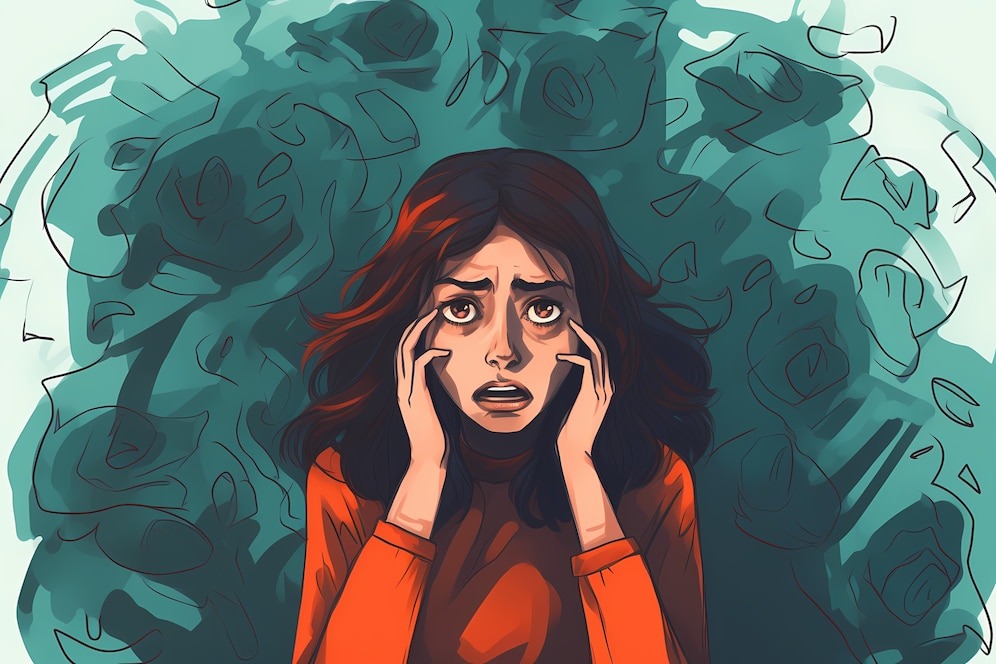Dreams have fascinated humans for centuries, captivating our imaginations and leaving us with a sense of wonder. They have been the subject of countless interpretations, with each culture and individual offering unique insights into their meaning. Dream analysis, a practice rooted in psychology, seeks to unravel the symbolism and significance hidden within our dreams. One common theme that can elicit distress is dreams about suicide. In this article, we will explore the depths of these dreams and attempt to decode their meaning.
Understanding the Symbolism in Dreams
Dreams are a language of symbols, often communicating thoughts, emotions, and experiences that may be buried deep within our subconscious. They have the power to reflect our fears, desires, and unresolved conflicts. When it comes to dreams about suicide, it is crucial to approach them with empathy and curiosity, as they can be indicative of deeper psychological issues.
Exploring the Psychology Behind Dreams
Dreams are the product of our subconscious mind at work. They can be influenced by our daily experiences, thoughts, and emotions. According to renowned psychologist Sigmund Freud, dreams serve as a gateway to our unconscious desires and repressed memories. They allow us to process unresolved conflicts and emotions that we may not be fully aware of in our waking lives. Carl Jung, another influential figure in dream analysis, believed that dreams hold a collective meaning, representing archetypes and universal symbols that are shared across cultures.
What Do Dreams About Suicide Mean?
Dreams about suicide can be alarming and distressing, but it is important to remember that they are not literal predictions or encouragements. Instead, they often symbolize a desire for change or a need for transformation. Dreams of suicide may also represent a subconscious cry for help or a reflection of feelings of hopelessness and despair. It is essential to approach these dreams with sensitivity and seek deeper understanding.
Common Interpretations of Suicide Dreams
Dreams about suicide can have various interpretations depending on the context and emotions involved. One interpretation suggests that these dreams may signify a desire to escape from overwhelming circumstances or emotional pain. They can also symbolize the need to let go of certain aspects of our lives that no longer serve us. Another interpretation suggests that dreams about suicide may represent a fear of failure or feelings of powerlessness. It is crucial to consider the specific details and emotions within the dream to gain a more accurate understanding of its meaning.
Factors Influencing the Interpretation of Suicide Dreams
The interpretation of dreams, including those about suicide, is highly subjective and can vary from person to person. Factors such as personal experiences, cultural background, and individual beliefs can influence the meaning attributed to these dreams. It is essential to reflect on your own emotions, experiences, and circumstances when attempting to interpret dreams about suicide. Consulting with a professional dream analyst or therapist can provide valuable insights and guidance.
Coping with Distressing Dreams About Suicide
Dreams about suicide can be emotionally challenging, leaving us feeling uneasy and disturbed upon waking. Coping with these dreams requires self-care and compassion. Engaging in relaxation techniques such as deep breathing exercises or meditation can help calm the mind and reduce anxiety. It is also beneficial to engage in activities that bring joy and fulfillment, fostering a positive mindset. Sharing your dreams with a trusted friend or therapist can provide a sense of relief and support.
Spousal Suicide Dream: Treading the Path of Intimacy
Dreams depicting the suicide of a spouse delve into the intricacies of intimate relationships and emotional vulnerability. They mirror our fears of loss and abandonment, prompting us to nurture trust and emotional connection within partnerships. Through introspection and communication, we navigate the terrain of intimacy, fostering resilience and mutual support.
The Spiritual Tapestry: Beyond the Mundane Realm
Beyond the realms of psychology lies the ethereal realm of spirituality, where dreams transcend mere symbolism, offering glimpses into higher truths and divine guidance. Suicide dreams, when viewed through a spiritual lens, embody the journey of soul evolution and spiritual awakening, beckoning us towards enlightenment and transcendence.
Biblical Insights: A Testament of Faith and Redemption
In biblical lore, dreams of suicide carry profound spiritual significance, serving as vessels of divine communication and moral guidance. They symbolize the repercussions of disobedience and the journey towards repentance and redemption. Through introspection and spiritual renewal, we navigate the path towards spiritual enlightenment and divine grace.
Seeking Professional Help for Recurring Suicide Dreams
If dreams about suicide persist or significantly impact your well-being, it is essential to seek professional help. A qualified therapist or psychologist can assist in exploring the underlying causes of these dreams and guide you towards effective coping strategies. They can provide a safe space for processing emotions and offer valuable insights into your psychological well-being. Remember, seeking help is a sign of strength and a proactive step towards understanding and addressing the deeper issues surrounding these dreams.
Addressing Underlying Issues Related to Suicide Dreams
Dreams about suicide may serve as a symbolic representation of unaddressed psychological or emotional issues. It is crucial to reflect on your waking life and identify any underlying factors that may be contributing to these dreams. This process may involve exploring past traumas, unresolved conflicts, or unfulfilled desires. Engaging in therapy or counseling can provide the necessary support and guidance to address these underlying issues and promote healing.
Read More: 322 Angel Number Meaning for Twin Flames
Final Word
Dreams about suicide hold a profound significance, offering a window into our subconscious minds. While distressing, these dreams can be seen as invitations to explore our innermost thoughts, emotions, and desires. By understanding the symbolism and psychology behind dreams, we can gain valuable insights into our own psyche and embark on a journey of self-discovery. Remember, if these dreams persist or cause significant distress, seeking professional help is crucial. Embrace the opportunity to unlock the depths of your dreams and decode the meaningful messages they hold.
If you or someone you know is struggling with thoughts of suicide, please reach out to a mental health professional or a helpline in your country.
FAQs About Suicide Dream Meaning
1. Are suicide dreams a sign of mental illness?
Suicide dreams alone are not indicative of mental illness, but frequent or distressing dreams may warrant further evaluation by a mental health professional.
2. Can suicide dreams predict the future?
Dreams are not typically predictive in nature and should not be relied upon as a means of foreseeing future events.
3. Should I be concerned if I have a one-time suicide dream?
Occasional dreams of suicide are common and may simply reflect temporary stressors or emotions. However, if the dream recurs or causes significant distress, it’s advisable to seek support.
4. How can I prevent suicide dreams?
While it’s not always possible to prevent specific dreams, maintaining a healthy lifestyle, managing stress effectively, and addressing underlying emotional issues can reduce the frequency of distressing dreams.
5. Can dream interpretation books provide accurate insights into suicide dreams?
Dream interpretation books can offer general guidance, but the most meaningful interpretations often come from personal reflection and exploration with the help of a trained therapist or counselor.




